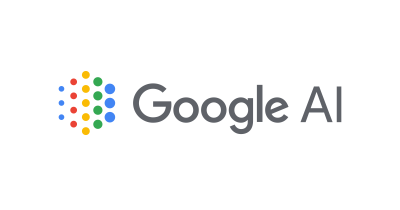Google Unleashes Gemini 2.5 Computer Use: AI Agents Now Navigate the Web Like Humans Do
By: @devadigax

In a significant leap forward for artificial intelligence, Google is previewing its latest innovation, Gemini 2.5 Computer Use – a groundbreaking AI model designed to interact with and navigate the internet via a web browser, much like a human user. This development marks a pivotal moment in the evolution of AI, moving beyond mere conversational interfaces to empower AI agents with the ability to operate autonomously within the complex, human-designed environments of the world wide web.
Dubbed "Gemini 2.5 Computer Use," this model is not just another iteration of Google's powerful Gemini family; it represents a paradigm shift. Its core capability lies in its "visual understanding," allowing it to interpret web pages, identify elements like buttons, forms, and text, and then execute tasks by interacting with them directly through a browser. This means an AI can now perform actions that previously required human intervention, such as filling out online forms, navigating multi-step purchasing processes, conducting research across various websites, or even managing online accounts, all within the standard web browser interface.
The implications of an AI model capable of browser-based interaction are profound. Traditionally, AI systems have relied on structured data, APIs (Application Programming Interfaces), or direct integrations to perform tasks. While effective for specific, pre-defined operations, this approach limits AI's ability to operate in the vast, unstructured, and constantly evolving landscape of the internet. Gemini 2.5 Computer Use bypasses these limitations by equipping AI with the ability to perceive and act within any web environment, opening up a universe of possibilities for automation and digital assistance.
Consider the everyday tasks that could be revolutionized. For individual users, an AI agent powered by Gemini 2.5 Computer Use could book complex travel itineraries, compare prices across e-commerce sites, manage subscriptions, or even help with online learning by navigating educational platforms. For businesses, the potential is even greater. Imagine AI agents automating customer support by navigating CRM systems, performing market research by scraping and synthesizing data from competitor websites, or streamlining data entry across various web portals. This technology could drastically reduce the time and resources spent on repetitive, browser-based tasks across industries.
This advancement also signifies a major stride in the realm of "agentic AI." Agentic AI refers to systems that can understand goals, plan sequences of actions, execute those actions, and adapt based on feedback from their environment to achieve complex objectives. By giving an AI model the ability to browse and interact with the web, Google is essentially providing it with a universal interface to the digital world, transforming it into a highly capable and versatile digital agent. This moves us closer to a future where AI isn't just a tool for answering questions but a proactive partner in accomplishing tasks.
The "visual understanding" aspect is key to this breakthrough. It means the model doesn't just read the underlying code of a webpage; it "sees" the page as a human does. It can identify a login button because it looks like a login button, understand that a text box is for entering a password, and navigate menus based on their visual presentation and context. This multimodal capability, combining visual perception with language understanding and decision-making, is a hallmark of the most advanced AI systems emerging today.
However, with such powerful capabilities come significant considerations. The reliability of such agents will be paramount; what happens when a website changes its layout, or an unexpected pop-up appears? Ensuring the AI can robustly handle these dynamic web environments will be crucial for widespread adoption. Furthermore, ethical concerns surrounding data privacy, potential for misuse (e.g., automated account takeovers, sophisticated phishing, or mass data scraping), and the societal impact on employment must be carefully addressed as this technology matures. Google, along with the broader AI community, will need to establish robust safeguards and responsible development guidelines.
Google's foray into browser
Dubbed "Gemini 2.5 Computer Use," this model is not just another iteration of Google's powerful Gemini family; it represents a paradigm shift. Its core capability lies in its "visual understanding," allowing it to interpret web pages, identify elements like buttons, forms, and text, and then execute tasks by interacting with them directly through a browser. This means an AI can now perform actions that previously required human intervention, such as filling out online forms, navigating multi-step purchasing processes, conducting research across various websites, or even managing online accounts, all within the standard web browser interface.
The implications of an AI model capable of browser-based interaction are profound. Traditionally, AI systems have relied on structured data, APIs (Application Programming Interfaces), or direct integrations to perform tasks. While effective for specific, pre-defined operations, this approach limits AI's ability to operate in the vast, unstructured, and constantly evolving landscape of the internet. Gemini 2.5 Computer Use bypasses these limitations by equipping AI with the ability to perceive and act within any web environment, opening up a universe of possibilities for automation and digital assistance.
Consider the everyday tasks that could be revolutionized. For individual users, an AI agent powered by Gemini 2.5 Computer Use could book complex travel itineraries, compare prices across e-commerce sites, manage subscriptions, or even help with online learning by navigating educational platforms. For businesses, the potential is even greater. Imagine AI agents automating customer support by navigating CRM systems, performing market research by scraping and synthesizing data from competitor websites, or streamlining data entry across various web portals. This technology could drastically reduce the time and resources spent on repetitive, browser-based tasks across industries.
This advancement also signifies a major stride in the realm of "agentic AI." Agentic AI refers to systems that can understand goals, plan sequences of actions, execute those actions, and adapt based on feedback from their environment to achieve complex objectives. By giving an AI model the ability to browse and interact with the web, Google is essentially providing it with a universal interface to the digital world, transforming it into a highly capable and versatile digital agent. This moves us closer to a future where AI isn't just a tool for answering questions but a proactive partner in accomplishing tasks.
The "visual understanding" aspect is key to this breakthrough. It means the model doesn't just read the underlying code of a webpage; it "sees" the page as a human does. It can identify a login button because it looks like a login button, understand that a text box is for entering a password, and navigate menus based on their visual presentation and context. This multimodal capability, combining visual perception with language understanding and decision-making, is a hallmark of the most advanced AI systems emerging today.
However, with such powerful capabilities come significant considerations. The reliability of such agents will be paramount; what happens when a website changes its layout, or an unexpected pop-up appears? Ensuring the AI can robustly handle these dynamic web environments will be crucial for widespread adoption. Furthermore, ethical concerns surrounding data privacy, potential for misuse (e.g., automated account takeovers, sophisticated phishing, or mass data scraping), and the societal impact on employment must be carefully addressed as this technology matures. Google, along with the broader AI community, will need to establish robust safeguards and responsible development guidelines.
Google's foray into browser
Comments
Related News

Doubling Down on AI: Mozilla's New CEO Charts a Transformative Path for Firefox
Mozilla, a name long synonymous with an open internet and user empowerment, finds itself at a pivotal juncture. With a new CEO ...
@devadigax | 16 Dec 2025
Mozilla, a name long synonymous with an open internet and user empowerment, finds itself at a pivotal juncture. With a new CEO ...
@devadigax | 16 Dec 2025

OpenAI Unveils ChatGPT Atlas: Your Browser Just Became Your Smartest AI Assistant
In a move poised to fundamentally reshape how we interact with the internet, OpenAI has officially launched ChatGPT Atlas, a gr...
@devadigax | 22 Oct 2025
In a move poised to fundamentally reshape how we interact with the internet, OpenAI has officially launched ChatGPT Atlas, a gr...
@devadigax | 22 Oct 2025

Netflix Doubles Down on Generative AI, Challenging Hollywood's Divide Over Creative Futures
In a move that underscores a growing chasm within the entertainment industry, streaming giant Netflix is reportedly going "all ...
@devadigax | 21 Oct 2025
In a move that underscores a growing chasm within the entertainment industry, streaming giant Netflix is reportedly going "all ...
@devadigax | 21 Oct 2025

AI Agent Pioneer LangChain Achieves Unicorn Status with $1.25 Billion Valuation
LangChain, the innovative open-source framework at the forefront of building AI agents, has officially joined the exclusive clu...
@devadigax | 21 Oct 2025
LangChain, the innovative open-source framework at the forefront of building AI agents, has officially joined the exclusive clu...
@devadigax | 21 Oct 2025

Meta Boots ChatGPT From WhatsApp: A Strategic Play for AI Dominance and Walled Gardens
In a significant move that reshapes the landscape of AI chatbot accessibility, OpenAI has officially confirmed that its popular...
@devadigax | 21 Oct 2025
In a significant move that reshapes the landscape of AI chatbot accessibility, OpenAI has officially confirmed that its popular...
@devadigax | 21 Oct 2025
 AI Tool Buzz
AI Tool Buzz